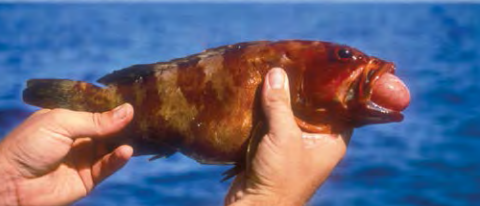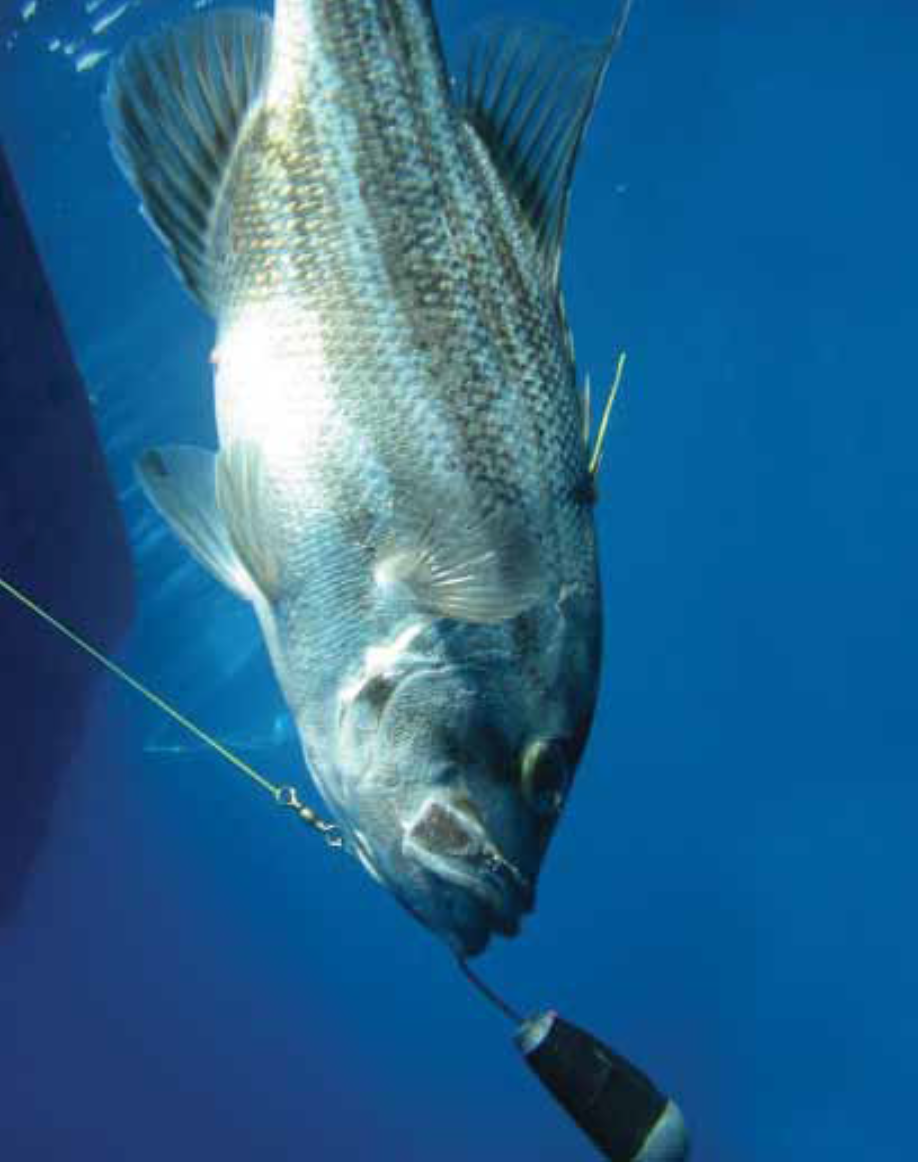Western Australia is home to some of the most
exciting and varied recreational fishing opportunities in the world. Our
coastline and inland waters support a fantastic array of aquatic species,
providing superb recreational fishing opportunities.
However, our aquatic resources
are not unlimited and it’s important that all fishers fish responsibly and care
for their catch. By adhering to the recreational fishing rules and taking appropriate care at every stage of fishing, we can all do our part to help sustain healthy and thriving aquatic ecosystems.
Here are a few simple things you can do on your next fishing trip to ensure fish for our future:
Catching fish
Using the right equipment for the species you are targeting will help decrease the chance of injury to the fish, increase their chance of survival if released, and produce better eating quality for those you keep.
- Choose appropriate hooks to increase survival chances of any undersize or protected fish. Circle hooks reduce the chance of gut-hooking, and barbless hooks are easier to remove with minimal damage. If your fish is gut-hooked, it is best to cut the line as close as possible to the hook.
- Use an appropriate class fishing line for the size of fish you are trying to catch to minimise stress on the fish.
- Shark depredation, or bite-off, has been an issue of increasing concern to commercial, charter and recreational fishers in WA for some years. some ways you can mitigate bite-offs:
- If depredation starts to occur, moving fishing spots immediately.
- Consider using shark deterrent devices.
- Avoid areas known to be depredation hotspots.
Handling fish
By handling fish appropriately, you can reduce their level of stress and decrease the chances of injury, ensuring a better chance of survival if they are released.
- Minimise the time the fish is out of the water. If possible, keep the fish in the water while removing hooks.
- Use a soft, knotless landing net to minimise the loss of protective slime and scales.
- Use a clean wet rag to handle the fish.
- Support the body of the fish, and do not hang the fish vertically by the jaws or gills.
- Place the fish on a cool, wet surface, not a hot, dry one.
Releasing fish
To increase the chance of survival, gently release undersize, protected and out-of-season fish carefully and immediately, following these steps:
- Remove hooks quickly and carefully. Use long-nosed pliers or dedicated hook extractors to quickly and carefully release fish.
- For deep-hooked fish, leave the hook in place and cut the line as close as possible to the hook.
- Revive fatigued fish by gently holding the fish in the water so that water moves over the gills. Release the fish when it can swim away with energy.
- For demersal (bottom-dwelling) fish that may be suffering from barotrauma, use an appropriate release weight to return the fish to the bottom.
Download our  handy guide for releasing fish.
handy guide for releasing fish.
Just like SCUBA divers, some demersal (bottom-dwelling) species, such as West Australian dhufish, can suffer decompression damage or ‘barotrauma’ when caught. Barotrauma occurs when gases inside the fish’s body expand due to a sudden decrease in pressure as it ascends to the surface, causing the fish’s stomach to push out through its mouth or gills and its eyes to protrude. Damage to internal organs can also occur as a result. These species suffer high mortality rates upon release.

Fish showing signs of barotrauma with everted stomach.
To increase a fish's chance of survival, use an appropriate release weight. The release weight will help the fish sink to the depths despite an inflated swim bladder.
Note: it is now a requirement that if you are line fishing for demersal finfish from a boat anywhere in WA waters, you must have an appropriate release weight on board.

Demersal species
You can help protect demersal finfish stocks by:
- avoid fishing during demersal closures. If you catch a demersal finfish from a boat or from the shore in the West Coast Bioregion during the closed season, you must return it the water as soon as possible.
- avoid targeting demersal finfish species for catch and release fishing.
- stop fishing for demersal finfish once you have caught enough or reached you bag or boat limit.
- do not high grade your catch. Discarding a smaller fish for a bigger one results in more fish being removed from the fishery.
- change locations if you keep catching undersize or unwanted fish, or if sharks keep taking your fish.
- when releasing demersal fish, use an appropriate release weight.
Keeping fish
For fish you intend to keep, make sure you despatch humanely first and keep it fresh to get the most out of it.
How to fillet a fish
For great tips and videos on how to fillet local WA fish with no waste, check out the Fillet Fish Australia website.
Keep it clean and pristine
You can do your part to keep our beaches and waterways pristine by:
- Using biodegradable fishing equipment and bait bags.
- Bringing your litter back with you. This includes food and bait containers, cigarette butts, and other waste. If you are fishing from a boat, keep waste onboard and dispose of once ashore.
- Unwanted fishing gear should be disposed of properly. Be especially careful of fishing line as it can entangle marine animals. Look out for fishing line disposal bins at many popular fishing spots.
- Do not dump fish offal near boat ramps or popular swimming beaches as decaying fish heads, frames and offal can attract sharks and impact on other beach users.
- If there is no bin available, take it home, then use to fertilise your garden or freeze and then dispose through your rubbish pickup.
- Fish skeletons of certain key species can also be donated for research to the Send us your skeletons program.
Further information is available in our handy  Catch care guide
Catch care guide
Recreational fishing in the Kimberley
A  Code of Conduct for Recreational Fishing in the Kimberley is available to ensure sustainable fish resources and minimisation of the human footprint on the region.
Code of Conduct for Recreational Fishing in the Kimberley is available to ensure sustainable fish resources and minimisation of the human footprint on the region.
The code includes a number of positive actions and recommended strategies that gives recreational fishers some practical tips on maintaining world class fishing experiences of the Kimberley.